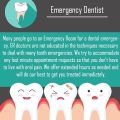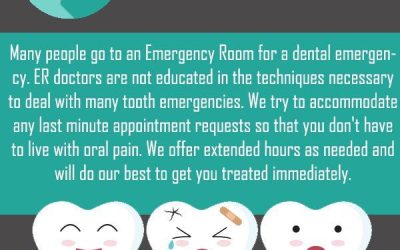So you’ve had a facial injury, huh? Whether it was a sports accident or a simple slip and fall, one thing’s for sure – you’re probably wondering about the impact it could have on your dental health. But how soon should you actually seek dental care after a facial injury? In this article, we’ll explore the importance of timely treatment and provide some key insights on when to reach out to your dentist. It’s time to take care of your smile and ensure a speedy recovery, so let’s get started!
Immediate assessment
If you’ve experienced a facial injury that has affected your teeth or jaw, it’s crucial to seek immediate assessment and evaluation from a dental professional. A dental professional will have the expertise and knowledge to provide you with the necessary emergency evaluation for your specific condition. They will be able to assess the extent of your injury and determine the appropriate course of action. In some cases, seeking immediate medical attention may be necessary, especially if the injury is severe or if there is excessive bleeding or severe pain.
Signs and symptoms
There are several signs and symptoms that may indicate the need for dental care after a facial injury. These include:
-
Swelling and pain in the face or jaw: Swelling and pain are common after a facial injury and may be indicative of underlying dental issues.
-
Bleeding or lacerations in or around the mouth: If you experience bleeding or lacerations in or around your mouth, it’s important to have them evaluated and treated by a dental professional.
-
Difficulty opening or closing the mouth: Facial injuries can sometimes lead to difficulty in opening or closing the mouth, which may indicate damage to the jaw joint or surrounding structures.
-
Loose or missing teeth: If you have loose or missing teeth as a result of a facial injury, it’s essential to seek dental care as soon as possible to prevent further damage and potential tooth loss.
-
Chipped, cracked, or fractured teeth: Chips, cracks, or fractures in the teeth can not only be painful but can also increase the risk of infection or further damage if left untreated.
-
Displaced or knocked out teeth: If your teeth have been displaced or completely knocked out, it’s crucial to seek emergency dental care to maximize the chances of successful re-implantation.
-
Changes in the alignment of the upper and lower jaw: Any changes in the alignment of your jaw should be evaluated by a dental professional to ensure there are no underlying issues.

Importance of quick action
Taking quick action after a facial injury is of utmost importance for several reasons. First and foremost, prompt dental care can help prevent further damage or complications. Dental issues, when left untreated, can escalate and lead to more severe problems down the line. Additionally, seeking immediate care can help manage pain and swelling effectively. Early intervention can help alleviate discomfort and reduce inflammation, making the recovery process more comfortable.
Immediate home care
While waiting for dental care, there are some immediate home care measures you can take to alleviate symptoms and prevent further complications.
Rinsing the mouth with warm saltwater can help reduce the risk of infection and promote healing. Saltwater acts as a natural antiseptic and can help cleanse the affected area.
Applying a cold compress or ice pack to the affected area can help reduce swelling and alleviate pain. Be sure to wrap the ice pack in a thin cloth to prevent direct contact with the skin.
If you are experiencing significant pain, over-the-counter pain medication can provide temporary relief. However, be sure to follow the dosage instructions and consult with a healthcare professional if you have any underlying medical conditions or take other medications.

Emergency dental care
In the case of a facial injury requiring immediate attention, it is essential to contact emergency dental services or reach out to a dentist who is on-call. They will have the necessary expertise and equipment to provide emergency dental care. When contacting them, provide detailed information about the injury, including the symptoms you are experiencing and any visible damage to the teeth or jaw. This information will help them better understand the situation and provide appropriate advice or treatment recommendations.
Timely assessment by a dentist
After receiving emergency dental care, it is crucial to schedule a dental appointment as soon as possible for a more comprehensive assessment. During this visit, the dentist will conduct a thorough examination, which may include X-rays and oral imaging, to evaluate the extent of the injury and assess the condition of the affected teeth and jaw. With this evaluation, the dentist will be able to provide you with specific treatment recommendations and options tailored to your needs.

Restorative dentistry procedures
Restorative dentistry procedures may be necessary to address the damage caused by a facial injury. These procedures aim to restore the function and aesthetics of the affected teeth and jaw. Some common restorative dentistry procedures include:
-
Repairing chipped or fractured teeth: Dental bonding, veneers, or dental crowns may be used to repair chipped or fractured teeth, depending on the extent of the damage.
-
Repositioning or replacing knocked-out teeth: If a tooth has been knocked out, a dentist may attempt to reposition and stabilize it. In some cases, a dental implant or bridge may be necessary to replace a missing tooth.
-
Providing temporary or permanent dental crowns: Dental crowns can be used to protect and restore damaged teeth, providing strength and support.
-
Bone grafting or jaw realignment if necessary: In more severe cases where the bone or jaw has been affected, bone grafting or jaw realignment procedures may be required to restore proper function and aesthetics.
Potential complications
Facial injuries can potentially lead to various complications if left untreated or not properly managed. Some possible complications include:
-
Infection in the mouth or jaw: Dental injuries can create an entry point for bacteria, increasing the risk of infection. Prompt treatment and proper oral hygiene can help prevent or address infection.
-
Gum or periodontal disease: Facial injuries can damage the gum tissue and lead to gum or periodontal disease if not properly managed. Regular dental check-ups and diligent oral hygiene practices are essential in preventing these issues.
-
Nerve damage or sensory changes: Severe facial injuries may cause nerve damage, resulting in sensory changes such as numbness or tingling in the affected areas. Expert dental care can help identify and address these issues if they arise.
-
Temporomandibular joint (TMJ) disorders: Facial injuries can disrupt the proper functioning of the temporomandibular joint, leading to TMJ disorders. Timely treatment and interventions can help manage and mitigate these disorders.
Long-term dental care
Once the initial treatment and recovery period following a facial injury have passed, it is important to prioritize long-term dental care to maintain oral health and prevent future issues. This includes:
-
Regular dental check-ups and cleanings: Regular dental check-ups allow your dentist to monitor your oral health, identify any potential issues, and provide preventive care.
-
Maintenance of restorative treatments: If you have received restorative dental treatments, such as dental crowns or implants, it is crucial to maintain them properly. Follow your dentist’s instructions on care and maintenance to ensure their longevity.
-
Proper oral hygiene practices: Practicing good oral hygiene is vital for overall oral health. Brushing your teeth twice a day, flossing daily, and using mouthwash can help prevent dental problems.
-
Wearing protective mouthguards during activities with the risk of facial injuries: If you participate in sports or activities that could pose a risk of facial injuries, wearing a protective mouthguard can help prevent dental trauma.
Psychological support
Facial injuries can often result in emotional trauma or anxiety, affecting a person’s overall well-being. It’s important to address these psychological aspects alongside the physical recovery process. If you find yourself struggling emotionally after a facial injury, consider reaching out to a counselor or therapist who can provide the necessary support and guidance. They can help you navigate the emotional impact of the injury and develop coping strategies to restore your confidence and overall well-being.
In conclusion, seeking prompt dental care after a facial injury is crucial for preventing further damage, effectively managing pain and swelling, and ensuring a successful recovery. By following the immediate home care measures, seeking emergency dental care, and scheduling a timely assessment by a dentist, you can address both the immediate and long-term consequences of a facial injury. Remember to prioritize your oral health through regular dental care, proper oral hygiene practices, and wearing protective gear when necessary. Lastly, don’t hesitate to seek psychological support if needed, as emotional well-being is an essential component of overall recovery and healing.












